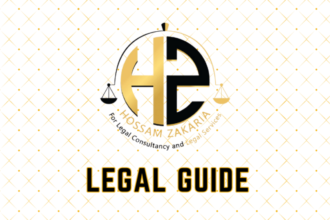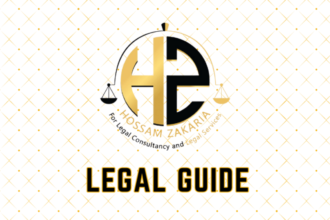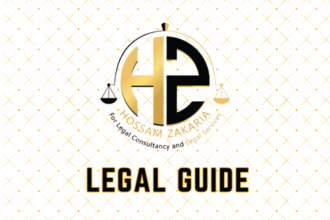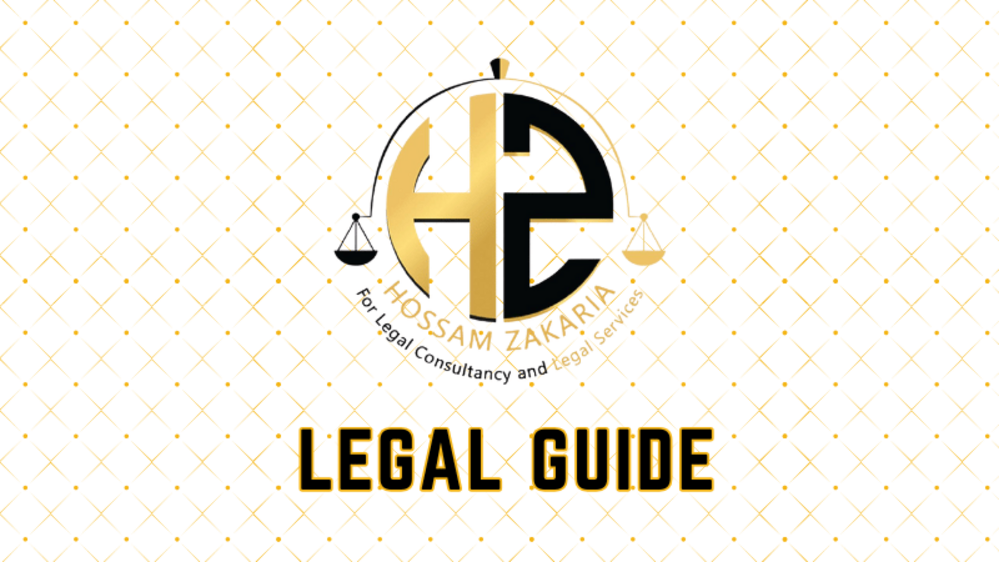Introduction: AI Innovations and Evolving Legal Compliance in the GCC
In the rapidly evolving financial landscape of the Gulf Cooperation Council (GCC), Qatar has emerged as a prominent leader, especially on the frontier of artificial intelligence (AI) integration. With global regulatory frameworks adapting swiftly to the challenges and opportunities created by AI, legal compliance has become a pressing concern for financial institutions. UAE market participants, executives, compliance officers, and in-house legal teams must watch these regional developments closely, as AI-driven transformations in Qatar’s financial sector often influence, and are influenced by, the regulatory and practical realities of the broader Gulf. The introduction of AI-powered compliance, evolving data protection regimes, and digital transformation policies require in-depth understanding not only of the black-letter law but also of risk exposures, best practices, and practical application. This consultancy-grade analysis explores the dynamic interplay between AI innovation and legal compliance obligations in Qatar’s financial sector, drawing actionable lessons for UAE businesses ahead of the 2025 legal updates while ensuring an authoritative perspective rooted in the current UAE legislative environment.
Table of Contents
- AI in Qatar’s Financial Sector: Context and Regulatory Drivers
- Legal and Regulatory Frameworks Governing AI Compliance
- Major Compliance Challenges and Risk Areas
- Opportunities: AI as a Compliance Enabler
- Comparative Analysis: Qatar vs UAE AI Legal Regimes
- Case Studies and Practical Illustrations
- Non-Compliance Risks & Effective Compliance Strategies
- Conclusion: Forward-Looking Legal Perspectives for UAE Businesses
AI in Qatar’s Financial Sector: Context and Regulatory Drivers
Setting the Scene: Digital Ambitions and Compliance Imperatives
Qatar has positioned itself as a regional hub for fintech and digital banking, supported by national strategies such as the Qatar National Vision 2030 and policies from the Qatar Central Bank (QCB). The sector’s embrace of AI is twofold: on one hand, AI underpins the launch of smart banking apps, biometric KYC (Know Your Customer), and automated anti-money laundering (AML) systems; on the other, these advancements impose complex new compliance obligations.
The QCB, Qatar Financial Centre Regulatory Authority (QFCRA), and the Qatar Financial Markets Authority (QFMA) have ramped up regulatory scrutiny to ensure that technological innovation aligns with legal and ethical norms. Of particular note are the QCB’s Guidance Note on Digital Banking Issued in 2022 and the QFCRA’s updated AML and Combating the Financing of Terrorism (CFT) Rulebooks. These developments mirror recent UAE federal initiatives, such as the UAE Cabinet Resolution No. 9 of 2021 on regulated financial activities, and signal a regional trend towards robust digital compliance.
Consultancy Insight
For UAE-based entities or subsidiaries operating in Qatar, staying abreast of both local and GCC-wide AI compliance obligations is vital. Regulatory changes in one jurisdiction often foreshadow similar reforms in neighboring states. Early adaptation provides a strategic advantage and minimizes transition risks.
Legal and Regulatory Frameworks Governing AI Compliance
Qatar: Key Legal Instruments
The legal framework for AI in Qatar’s financial sector comprises a patchwork of existing and emerging laws:
- QCB Regulations: Cover digital banking, e-KYC, and cybersecurity for all licensed entities.
- QFCRA Rulebook (Updated 2022): Includes specific provisions for AI systems used in AML, CFT, and data analysis.
- Qatar Personal Data Privacy Protection Law (Law No. 13 of 2016, updated by Law No. 8 of 2021): Regulates personal data processing, fair algorithmic use, and cross-border data transfer.
How They Apply: Provisions in Detail
| Area | Qatar | UAE (Reference) |
|---|---|---|
| Data Privacy / AI | Privacy Law No. 13/2016 (amended by 8/2021) | Federal Decree-Law No. 45 of 2021 (Personal Data Protection Law) |
| AML / CFT | QFCRA Rulebooks, QCB Standards | Federal Decree-Law No. 20 of 2018 (AML-CFT), Cabinet Resolution No. 10/2019 |
| Digital Banking | QCB Guidance Note on Digital Banking (2022) | Cabinet Resolution No. 9 of 2021 |
| AI Ethics / Transparency | Proposed in QCB and QFCRA sectoral guidelines | UAE AI Ethics Guidelines (2022 MOAI), DIFC Data Protection Law 2020 |
Professional Guidance
- AI-driven automation must be designed with clear audit trails to satisfy regulator scrutiny.
- Self-learning systems require frequent compliance reviews to prevent and detect bias or data privacy breaches.
- Contractual arrangements for AI development should expressly allocate legal accountability between banks, fintechs, and tech partners.
Cross-Border Operations
Qatar and the UAE both have extra-territorial application in elements of their financial and data protection laws. This is highly relevant in outsourcing agreements, cloud data storage, and cross-border AI deployment within the GCC. UAE entities operating regionally must map legal obligations in each relevant jurisdiction to avoid compliance fragmentation.
Major Compliance Challenges and Risk Areas
Key Pain Points
- Data Integrity and Transparency: AI ‘black box’ decision-making can contravene fair process rights and evidential requirements under local law.
- Algorithmic Bias: Automated systems that produce discriminatory results may lead to civil liability under both data privacy and anti-discrimination statutes.
- Cybersecurity: Increased reliance on AI heightens vulnerability to advanced persistent threats (APT), falling under mandatory reporting obligations.
- Record-Keeping: National banks and financial institutions must maintain verifiable AI activity logs that meet QCB and QFCRA standards.
Legal Examples and Risk Commentary
Suppose a Qatari digital bank uses AI-powered credit assessment. A client rejected by an algorithm disputes the decision, alleging unlawful bias and data mishandling. Under Qatar’s updated data privacy law, the bank must:
- Provide a clear explanation of the rejection criteria (transparency obligation).
- Demonstrate non-discrimination in algorithmic decisions—likely backed by regular audits.
- Prove adherence to the lawful processing and cross-border data transmission rules.
Failure at any step can attract regulatory intervention, fines, and even legal action from affected clients. Similar risks exist in the UAE under Federal Decree-Law No. 45 of 2021 and the UAE Central Bank’s robust risk management mandates.
Opportunities: AI as a Compliance Enabler
Regtech, Suptech, and Digital Transformation
AI tools are not only a source of compliance obligations but also a valuable compliance resource. Regtech solutions bring automated transaction monitoring, natural language contract analysis, and intelligent customer onboarding modules—dramatically increasing the efficiency and reach of compliance programs.
Illustrative Benefits Table
| Application | Legal Benefit | Qatar Compliance Example |
|---|---|---|
| AI Transaction Monitoring | Faster AML alerts, improved risk scoring | Required under QFCRA AML rulebook for real-time risk detection |
| e-KYC Automation | Enhanced identity verification; reduced manual error | Aligned with QCB Digital Banking Guidelines; mirrored in UAE Cabinet Res. 9/2021 |
| Document Analysis | Increased due diligence speed; robust audit trails | Relevant for data subject access and reporting under Privacy Law No. 13/2016 |
Consultancy Guidance: Best Practices
- Integrate AI solutions that are ‘explainable’—with clear output logic and accessible justification trails for regulator review.
- Implement routine algorithm audits to check for compliance with anti-bias and data privacy mandates.
- Ensure cross-border deployments are assessed for legal risk in both Qatar and the UAE before roll-out.
Suggested Visual: Compliance Process Flow Diagram
[Insert process flow diagram illustrating AI-powered AML compliance workflow from data ingestion to regulatory reporting. Visuals can provide clarity into the end-to-end process and key control points.]
Comparative Analysis: Qatar vs UAE AI Legal Regimes
Headline Regulatory Differences and Regional Trends
Although Qatar and the UAE have broadly similar approaches, some contrasts influence compliance strategy. For example, the UAE (especially in DIFC/ADGM) has issued stand-alone AI ethics guidelines, while Qatar relies on sectoral guidance through central banking and market regulators.
Old vs New Law Comparison Table
| Area | Pre-AI Regulation | AI-Era Regulation |
|---|---|---|
| AML Monitoring | Manual review; retrospective reporting | Real-time, AI-driven alerts and predictive risk analysis; ongoing transaction monitoring |
| KYC / Onboarding | Physical records, human-driven validation | AI biometric recognition and dynamic e-forms with instant verification |
| Record-Keeping | Manual logs; periodic sampling | Automated, tamper-proof audit trails supporting regulator access |
| Data Privacy | General confidentiality requirements | Explicit algorithm transparency; regular bias audits; formal cross-border data controls |
Professional Perspective
UAE practitioners should note that GCC legislative harmonization is an emerging reality. Laws and guidelines adopted in Qatar today can quickly influence UAE standards (see, for example, joint central bank working groups and the cross-border MOU between UAE and Qatar regulators in 2023). Early alignment with best practice is not only prudent—it’s essential for maintaining GCC-wide market access and reputation.
Case Studies and Practical Illustrations
Case Study 1: AI-Driven AML Solution Implementation
A leading Qatari financial institution implemented a cloud-based AI transaction monitoring platform to meet enhanced AML requirements. This led to significant improvements in money laundering detection, but introduced concerns over personal data transfer to offshore servers. Legal counsel worked with compliance to:
- Design geo-fencing mechanisms ensuring sensitive data remained within Qatar-controlled servers, complying with Article 15 of Law No. 13/2016 (Data Privacy).
- Negotiate contractual provisions with the RegTech vendor assigning data security liability, disaster recovery, and regulator access rights.
- Establish automated reporting channels pre-agreed with the QFCRA.
Case Study 2: Algorithmic Credit Assessment and Dispute Resolution
A regional fintech using AI-driven credit scoring faced an increase in customer complaints regarding automated decisions. Regulatory investigation revealed that the firm did not maintain sufficient audit trails to reconstruct AI logic, breaching both transparency and non-discrimination provisions. Remedial steps included:
- Deploying ‘explainable AI’ solutions.
- Establishing customer recourse channels and redress mechanisms.
- Mandatory bias and fairness testing at regular intervals.
These compliance failures and correctives have direct parallels in the UAE, where Central Bank and ADGM/DIFC enforcement actions have underscored the need for robust auditability of AI systems.
Non-Compliance Risks & Effective Compliance Strategies
Potential Liability and Regulatory Penalties
Qatar’s regulators possess broad investigatory and sanctioning powers. Non-compliance with AI-relevant legal provisions can result in:
- Administrative fines and business license suspensions.
- Duty of notification to impacted customers, increasing reputational risk.
- Civil liability for damages from algorithmic harm or mishandling of data.
- Potential for criminal sanctions in extreme cases of willful AML/CFT breach or data privacy violations.
Suggested Table: Penalty Comparison
| Offence | Qatar Penalty | UAE Penalty (Reference) |
|---|---|---|
| AI Bias or Data Breach | Up to QAR 1,000,000 per incident (Law No. 13/2016) | Up to AED 5 million, plus civil liability (Decree-Law 45/2021) |
| AML Failures (AI-enabled) | Business suspension, QFCRA fine up to QAR 10 million | License revocation, fines up to AED 50 million (Decree-Law 20/2018) |
| Failure to Maintain Audit Trails | Regulatory censure, business restrictions | Service bans, regulatory blacklisting |
Effective Compliance Strategies
- Conduct comprehensive legal-risk mapping for all AI use cases and vendor contracts.
- Deploy regular independent compliance audits with a focus on explainable algorithms and bias mitigation.
- Implement robust data governance frameworks that align with both Qatar’s and the UAE’s personal data protection standards.
- Train staff and business units on AI legal risks and regulator expectations, with special attention to cross-border regulatory exposure.
Suggested Visual: Compliance Audit Checklist
[Insert a comprehensive compliance checklist with core questions for AI adoption, such as: ‘Can all key AI decisions be reconstructed for regulator review?’; ‘Are bias audits documented and up to date?’; ‘Have all cross-border data transfer risks been addressed by contract?’]
Conclusion: Forward-Looking Legal Perspectives for UAE Businesses
The integration of AI in Qatar’s financial sector is not merely a technological revolution; it’s a profound regulatory and compliance challenge, one that is mirrored—often in near real-time—by parallel reforms in the UAE. For legal and business professionals, the key takeaways are clear:
- AI compliance regimes are intensifying throughout the GCC: best practice today will become tomorrow’s minimum legal requirement.
- Proactive legal alignment—especially in auditability, algorithmic transparency, and cross-border data management—is critical for risk mitigation and maintaining regulator confidence.
- Strategic investment in secure, explainable AI and enhanced legal-compliance capabilities is not optional for financial institutions seeking sustainable, cross-GCC growth.
As the UAE prepares for its 2025 legislative updates, drawn from a rapidly digitalizing region, now is the time for organizations to review and update AI governance frameworks, legal contracts, and internal controls. Engaging with experienced legal consultants, leveraging industry best practices, and fostering a compliance-first culture will position UAE entities for both immediate regulatory readiness and long-term competitive advantage in the GCC financial sector.



